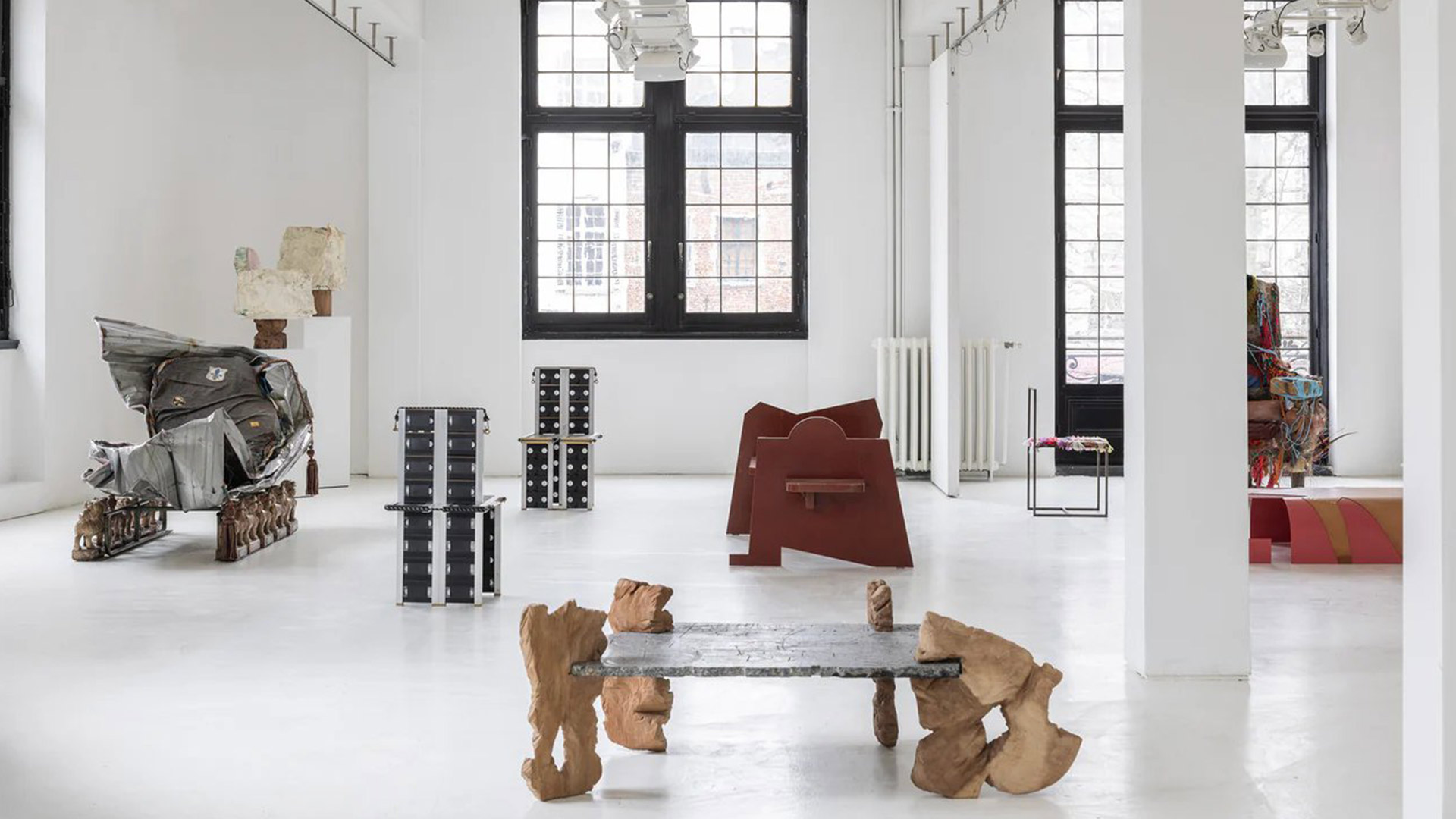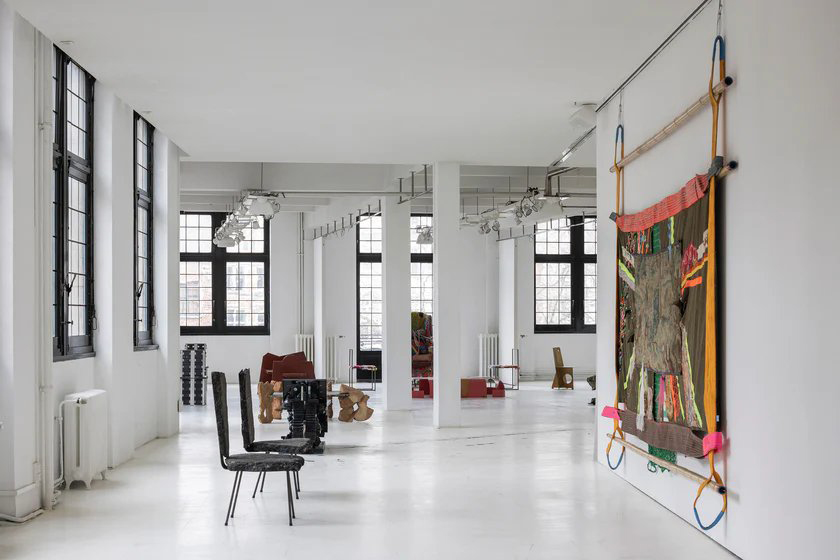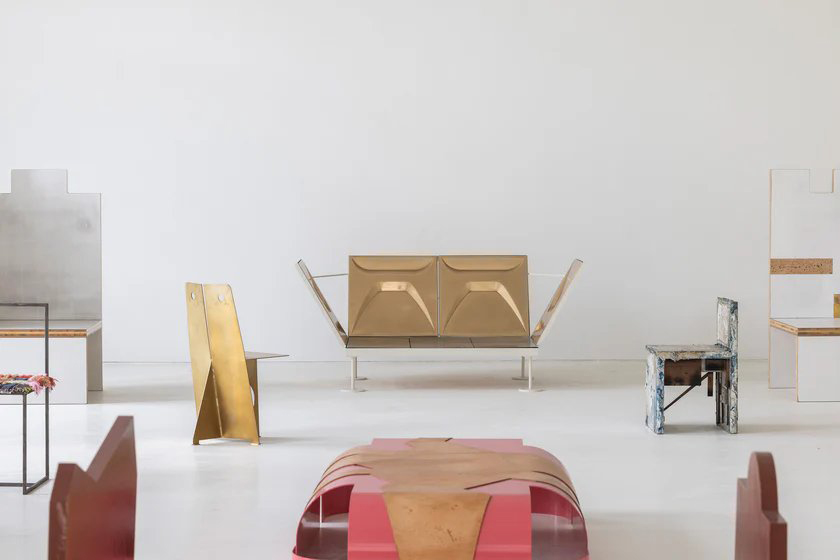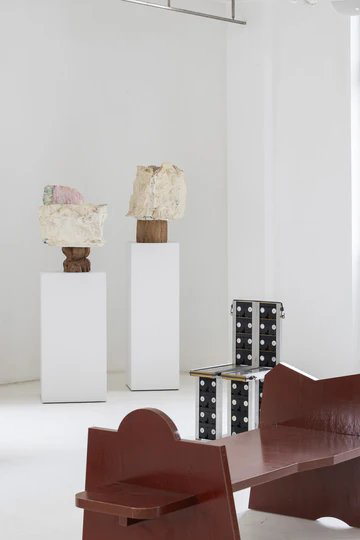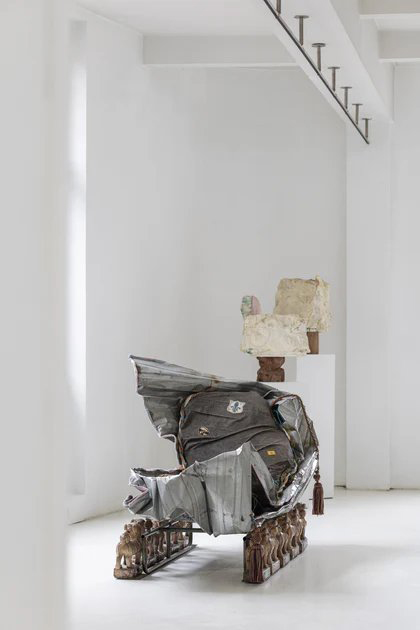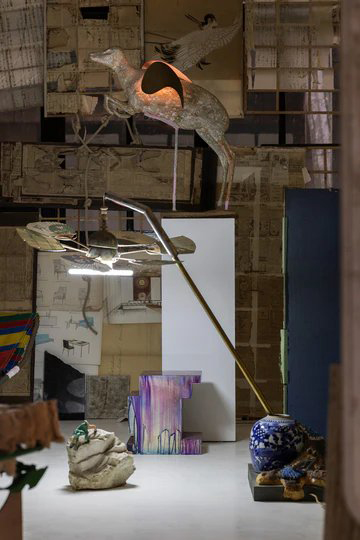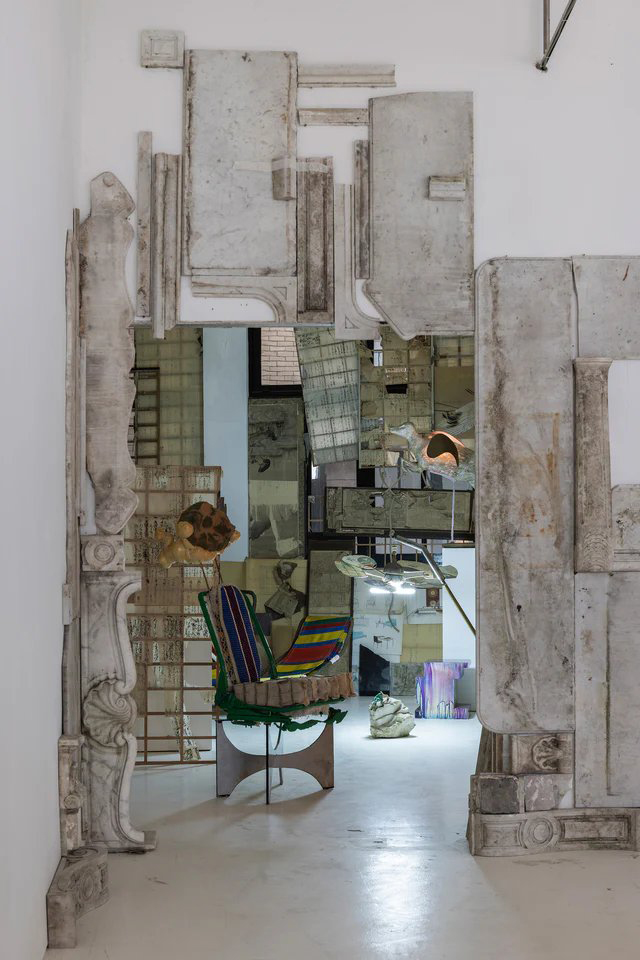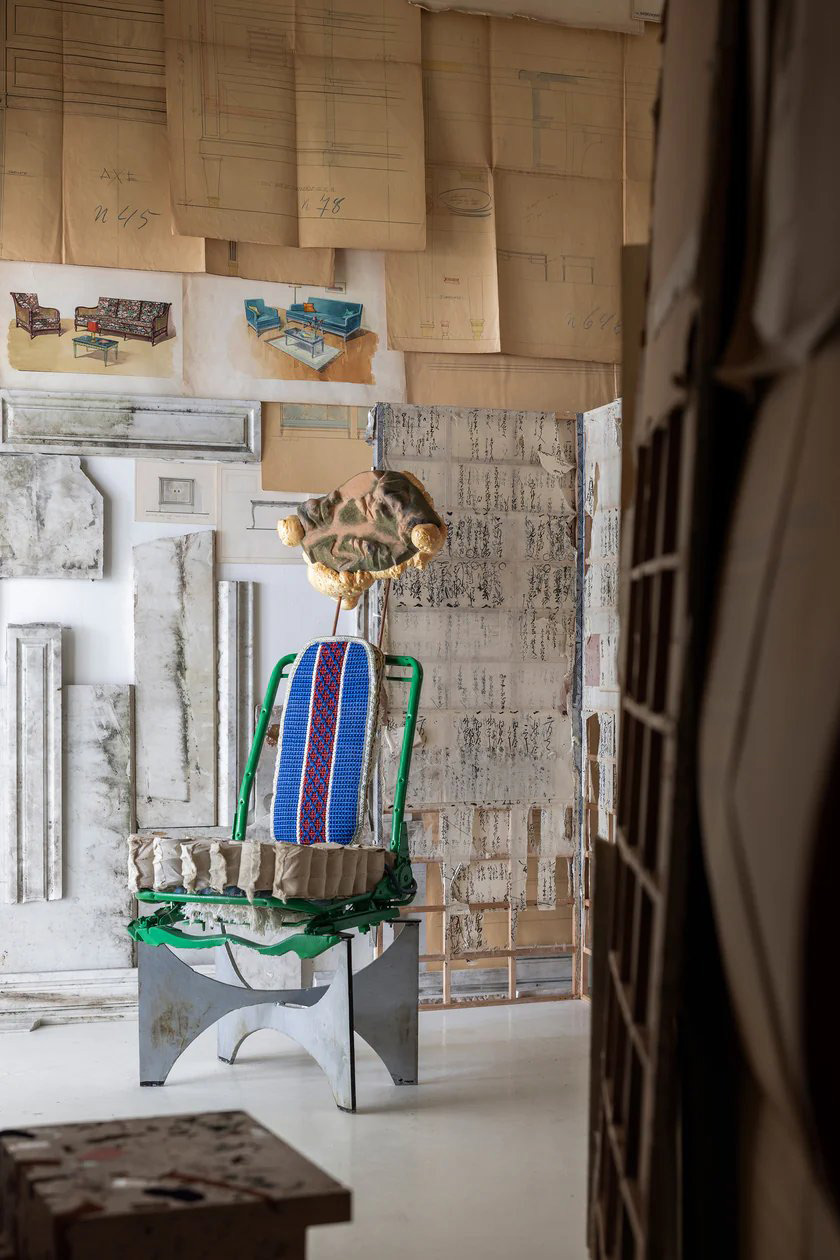The principle of reclamation has been relevant to Jadot from a young age. As a child in his father’s workshop, Jadot developed a keen attraction and respect for materials, coveting the bits of scrap wood and leather that would accumulate around the floor and had been deemed 'fair game'. Today this manifests as both a philosophical and aesthetic tenet to his work. Manipulating materials that have been salvaged permeates the works with a sense of character, history, and humanity.
"We must reinvent the concepts on which leaders rely: what does territory, borders or sovereignty mean in the age of the Anthropocene? It’s a whole Earth to be invented. I collect items, scraps, waste, found, bought, received, all used for 30 years, I catalogue them in my workshop, I list them, and I put them away. build my vision of a world where whatever we need cannot be bought, it is around us and then we build it, we assemble it, without rules, without diktats, without fashion, A certain idea of simplicity, honesty and above all freedom," shares Jadot.
The work confronts two distinct observations: the current world shaped by mass consumption and the realm that defies established rules and seeks transformative change. The Anthropocene is a newly recognised geological epoch, marked by the emergence of humans as the primary force of change on Earth, surpassing even geophysical forces. This is the age of humans—a time of unprecedented planetary disorder. Since 2016, scientists have definitively established that humanity has entered this new period, where human influence drives the evolution of the planet, rather than the reverse. In essence, humans have caused significant disruption, but it is crucial to remain optimistic. This era is also one of potential change and transformation.
Read more +
Read less -







 Sign in with email
Sign in with email


